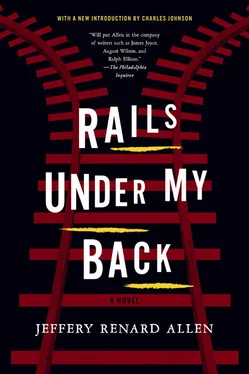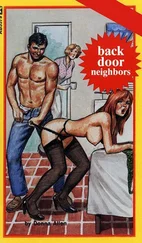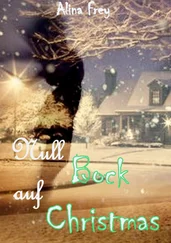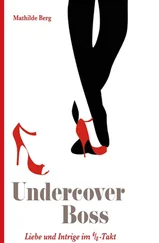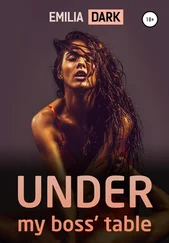This your house?
Uncle John says nothing.
You want to file a complaint?
Uncle John says nothing.
Look, we’ll take him but we ain’t got time for this. There real crime out there.
Take him, Uncle John says. He aims his mouth like a flashlight in Jesus’s face. It won’t kill him.
You heard the man. The cops tug Jesus into motion. You can feel your heart all through you. Eyes slide away from Jesus’s hating face. The cops waver swiftly to Gracie’s open front door. The cops slip and shamble with Jesus on the polished black oak front-porch stairs. Carry Jesus between and away from them like a scalding bucket.
Don’t forget his coat, Gracie says.
Give it to me.
Gracie passes the coat to Uncle John. Uncle John follows Jesus and the cops to the squad car. Winter hovers like a bird. I’ll come with you to the station, Uncle John says.
Come in the morning. The cop snatches the jacket from Uncle John. Sleep on it. And sleep it off.
The cops bend Jesus under the squad car hood. Push him into the back seat, throw his red coat over his head like a hood. Take their places in the front seat, doors slamming behind them, you and Uncle John watching from the sidewalk, the white headlights flicking bright — balloons in the night; light floating up inside to the inside place from where you watch — the engine growling and the car leaping forward onto the ribbon of road.
THAT WAS THE LAST Hatch had seen of him. On first finding out about the cancer eating away Lula Mae’s body, Hatch was determined to journey to Jesus and let him know; he never raised one uncertain foot in search. But these many months Jesus had felt near. His presence clung like a damp shirt. Now Hatch understood why. His exile foretold. Jesus approached the full height of his weightless life, for Freeze had given him a high mission and he would fulfill it, his red will be done. Blood followed blood. Blood defined. Blood defended.
T-Bone had smothered word for a reason. Hatch’s one spark of consolation. Through T-Bone, Hatch was wiser in the knowledge, perhaps safer too. The future will tell. But how to use this knowledge? Jesus was not within reach. Even if he was — Shifted, uprooted, Jesus would not drop back into what he had been for Hatch at the beginning. And Uncle John was gone from him forever. Lucifer too. And surely Freeze would not be swayed by reason, forget or forgive.
Hatch dipped, dived, turned — all without leaving his seat. One thing for sure, he had to heart it alone. The wheels were in his head now, carrying him, pushing him. The train curved around the tunnel, grinding iron wheels working filelike over his teeth. He sat there, hungry, digesting his own invisibility. The train straightened into moving silence. Red Hook. The words bobbed into Hatch’s consciousness, shiny red apples. Hatch bit. Red Hook. He tasted. Red Hook. The words forced their way to his lips. He looked about the car to see if anyone had heard him. Assured, he savored the words on his silent tongue. He would walk beyond the knowable horizon. He would move, swift and definite. Red Hook. His bright mind cut through metallic glare. He would go to Red Hook. The thought came smooth, without effort, rippling like a boat over water. The train tilted up, unhitched from the world. The whole car filled up with joy so that it was hard to breathe. Yes, he would go to Red Hook.
BEAUTY DEMANDS MOTOR SKILLS. Like driving a car.
She feels, words tossed into her silent insides. Her head warms to morning. A listening glow. Infinite sunlight. Infinite window. How clearly the instructor stands out against everything going on in front of her, his lips moving quietly, birdlike.
White lines. Yellow lines. Steady hand at the circular wheel. Sight and touch equal, each with a job to perform. The instructor pours a cup of coffee — she can hear it, smell it, feel it — that gleams like liquid steel. Her nipples rise to quick attention. Heads bent over sketchpads, the students behave in exemplary fashion. Their hands move with ease, comfort in knowing exactly what to do.
The reassuring sounds of another vehicle or two. Caught in the stillness of speed. The eye of each man is on himself. But, please, be careful. Cautious. The instructor waves his hands like a magician. Don’t blink.
The students shake with laughter, their pencils moving spastically. She would laugh too, if her flesh would permit.
Light, the most suitable of bodies, has the greatest extension.
The words she sees and seeing hears sink into a darkness past her telling. The instructor bends at the waist; with his thumb removes a dust speck from brown leather shoe, glowing tie extending down and away from his neck, a dog’s wet tongue. She waits. Light ticks off the sun. Spring forward. Fall back. She sits in her own weather, private.
Optics is inseparable from the study of lines, angles, and figures that are realized in the propagation of light.
This still room (and her body still). Bright lake light tiding the window. Moved by the instructor’s voice, words foreign in meaning. Depths she can’t sound. Moved. She spreads thought on the morning. Water-deeps reflect opening roses, expanding (disintegrating) leaves, floating colors, petals larger than her hands.
Your eye seeds itself. His fingers circle a sun-charged cup and saucer. A chip on the rim, neat clean and precise from a distance, as if painted on. He sips (one sips tea not coffee) it black. No sugar, I bet. Put money on it. Of smaller details, he says, coffee steam on his words, no saying. He chimes cup to saucer. Moves to the window — white cup and white saucer balanced in the palm of one hand like a delicate flower — blackfired against the light. Give me what you have.
The window offers a visual path to Red Hook miles through air blindingly bright, clear as if she knew it firsthand. Her feelings expand. Her desire for Deathrow released and flowing.
No false colors.
Deathrow in a place memory picked out. His skin mirror to her own.
No fraudulent lines. He lifts cup from saucer and tilts it to his lips. His eyes close with the drinking. He returns cup to saucer. Opens his eyes. Sets cup and saucer on the plane of windowsill. Breathes.
Deathrow.
He stands before the city — small eyes (bits of green glass), face strong, brows and hair the same heavy black; his body, fat and lined — it behind him, as if he had painted it. The city built into the sky. He built it. The calm of form, he gestures, the storm of imaginings.
The serial glint of distances. Everything’s far, except here. Even the instructor. A shape she can follow back to a source in the self. The students study her from the intimacy of distance, their voices faint and far. They — the same face repeated over and over, eyes gleaming — had entered quickly and silently, this long brown room full of sunlight and shadows, shifting trees outside. Her brown form took the podium, while silent praises trailed her from their desks.
To paint is to draw boundaries. Each dot a simple bearing that tells us where and how we ought to stand. He turns to face the window, his broad canvas of back facing the class. He takes it all in. Fresh. He lifts and sips. Ah, yes. Fresh.
Still-seated, seated-still, she listens and observes, only her eyes moving, and their eyes and hands: so many styles of breathing, varied shells dotting a beach. She hears against wind from a distance Deathrow speaks from, the earth (sand) between them. Her tenderest knowing. Deathrow far away, in that region inside herself, untouched and unchanged. Him belonging by how she feels about him. Yearning inward to be part, to be embodied.
To draw is to shut your eyes and sing. The instructor turns away from the window — light curling around him in the turning, curling, cocoonlike — back to the class. Taste is the mother of beauty. He takes up his cup and saucer, now yellow in the light. Open your mouth. Pigment. The instructor smiles, teeth large and round as eggs. Not pig meat.
Читать дальше
